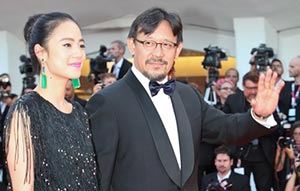

Tian said the Doha stalemate has spurred the US to scramble for regional preferential trade pacts outside the WTO.
Besides the TPP, the US has announced the launch of talks on the Transatlantic Trade and Investment Partnership with the 28-nation European Union, with the first round of negotiations due in early July. The two sides already have bilateral trade and investment worth nearly $5 trillion, the world's largest.
US Vice-President Joe Biden has said the US expects to reshape global rules for trade and improve the rules and norms by advancing the proposed Asia-Pacific regional free trade agreement and another agreement with the EU.
Against such a background, the unnamed source said: "China has to reconsider its strategy, turning more positive about the TPP. Otherwise, it will get sidelined on the global trade rules."
Xue Rongjiu, vice-chairman of the China Society for WTO Studies, said: "High levels of the Chinese government should show their resolution on joining the TPP, pressurizing ministries and local governments to make it happen. We have to break the barriers and break the vested interests."
Wu Jiahuang, another vice-chairman of the China Society for WTO Studies, said while China's new leadership is seeking further reform and opening-up, the TPP could be a breakthrough for the nation.
"The earlier we join, the more benefits we will enjoy."
Matthew Goodman, who was White House coordinator for the Asia-Pacific Economic Cooperation and the East Asia Summit forums during US President Barack Obama's first term, said: "In a practical sense, it would be very difficult to incorporate China into the (TPP) negotiations at this stage. I don't think China, even if it expresses interest and seriously considers it, is going to be ready, willing and able to join."
 Models at Ford pavilion at Chengdu Motor Show
Models at Ford pavilion at Chengdu Motor Show
 Brilliant future expected for Chinese cinema: interview
Brilliant future expected for Chinese cinema: interview
 Chang'an launches Eado XT at Chengdu Motor Show
Chang'an launches Eado XT at Chengdu Motor Show
 Hainan Airlines makes maiden flight to Chicago
Hainan Airlines makes maiden flight to Chicago
 Highlights of 2013 Chengdu Motor Show
Highlights of 2013 Chengdu Motor Show
 New Mercedes E-Class China debut at Chengdu Motor Show
New Mercedes E-Class China debut at Chengdu Motor Show
 'Jurassic Park 3D' remains atop Chinese box office
'Jurassic Park 3D' remains atop Chinese box office
 Beauty reveals secrets of fashion consultant
Beauty reveals secrets of fashion consultant